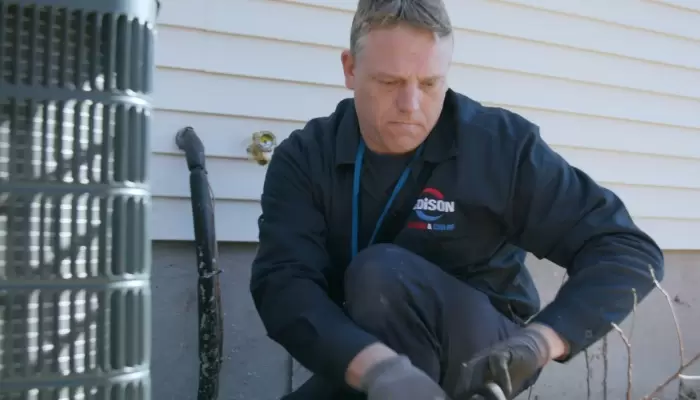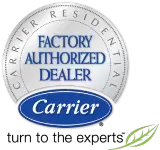
10 Common Signs Your HVAC System May Need Repair
Like any complex system, your home’s HVAC can encounter issues. Even with proper maintenance, it’s not uncommon for HVAC systems—especially after 10+ years of use—to need a little professional help. Whether your heating and cooling aren’t performing like they used to or you just want to be prepared, our guide has you covered. We’re here to break down 10 common signs that your HVAC system is struggling, the likely causes, and what you can do about them.
1. Increased Energy Bills Without Increase in Usage
One of the first indicators of a struggling HVAC system is a sudden spike in your energy bills, even though your usage hasn’t changed. This could be due to several factors:
- Aging Equipment: Over time, HVAC components can wear out, causing the system to work harder to maintain the desired temperature.
- Poor Maintenance: Lack of regular maintenance can lead to dirt buildup, clogged filters, and worn-out parts, all of which decrease efficiency.
- System Malfunctions: Faulty components like a malfunctioning thermostat or a failing compressor can cause the system to run longer and consume more energy.
To avoid higher costs and potential system failure, schedule regular maintenance checks and address any unusual spikes in your energy bills promptly.
2. Uneven Heating & Cooling
If some rooms in your home are too hot while others are too cold, your HVAC system may not be distributing air properly. Several issues could cause this:
- Ductwork Problems: Leaks, obstructions, or poorly designed ductwork can prevent even air distribution.
- Improperly Sized System: An HVAC system that’s too large or too small for your home can lead to uneven heating and cooling.
- Thermostat Issues: Faulty or improperly placed thermostats can cause inconsistent temperatures.
Professional inspection and possible adjustments or repairs to your ductwork or system can help ensure every room in your home stays comfortable.
3. Weak Airflow
Weak airflow from your vents can significantly impact your home’s comfort and indicate a serious problem within your HVAC system. Common causes include:
- Clogged Air Filters: Dirty filters restrict airflow and reduce system efficiency.
- Blocked or Leaky Ducts: Obstructions or leaks in the ductwork can impede airflow.
- Fan Problems: Issues with the blower fan, such as motor failure or loose belts, can result in weak airflow.
Regularly replacing air filters and having your blower fan and ductwork inspected by a professional can help maintain optimal airflow.
4. AC Blowing Warm Air / Heater Blowing Cold Air
If your air conditioner is blowing warm air or your heater is blowing cold air, it’s a clear sign that something is wrong. Potential causes include:
- Refrigerant Leaks: Low refrigerant levels due to leaks can prevent the AC from cooling effectively.
- Faulty Thermostat: Incorrect thermostat settings or a malfunctioning thermostat can lead to incorrect temperature control.
- Pilot Light or Ignition Issues: Problems with the pilot light or ignition system can prevent the heater from producing warm air.
Addressing these issues quickly with professional help can restore your system’s ability to maintain a comfortable indoor temperature.
5. Worsening Air Quality in Your Home
Your HVAC system plays a crucial role in maintaining indoor air quality. If you notice an increase in dust, allergens, or humidity levels, your system might be at fault. Common issues include:
- Dirty Filters: Old or clogged filters can’t effectively trap particles, leading to poor air quality.
- Mold or Mildew: Moisture buildup in the system can promote mold growth, affecting air quality and health.
- Ventilation Issues: Poor ventilation can lead to stale air and increased indoor pollutants.
Improving air quality involves regularly replacing filters, ensuring proper ventilation, and having your system inspected for mold or moisture issues.
6. Strange Sounds
Your HVAC system should operate quietly in the background. If you start hearing unusual noises such as grinding, squealing, banging, or rattling, it’s time to investigate. These sounds can indicate:
- Loose Parts: Components like belts or screws may come loose over time, causing noise.
- Motor Issues: Problems with the blower or fan motor can create unusual sounds.
- Debris: Foreign objects in the ductwork or system can rattle or obstruct parts.
Ignoring these noises can lead to further damage, so it’s essential to have a professional identify and fix the problem promptly.
7. Odd Smells
Unpleasant odors coming from your HVAC system are a clear sign something is wrong. Depending on the smell, the issue could range from minor to severe:
- Musty Odors: These typically indicate mold or mildew growth within the system or ductwork.
- Burning Smells: A burning odor could signify electrical issues or overheating components.
- Chemical Smells: A refrigerant leak often emits a chemical smell and needs immediate attention.
Any unusual odor should be addressed quickly to ensure your system is safe and operating correctly.
8. Frequent Cycling On & Off
Short cycling occurs when your HVAC system turns on and off frequently without completing a full cycle. This can reduce efficiency and increase wear and tear on the system. Common causes include:
- Thermostat Problems: Faulty or improperly placed thermostats can cause the system to short cycle.
- Refrigerant Issues: Low refrigerant levels can prevent the system from running correctly.
- Oversized System: A system that is too large for your home will cycle on and off frequently.
Correcting these issues promptly can improve efficiency and prolong the life of your HVAC system.
9. Back-to-Back Repairs
If your HVAC system requires frequent repairs, it may be a sign that it’s reaching the end of its lifespan or has underlying issues. Constant repairs can be costly and may indicate:
- Aging System: Older systems are more prone to breakdowns and may need more frequent fixes.
- Improper Installation: If the system is not installed correctly, it could lead to continuous issues.
- Manufacturing Defects: Some systems may have inherent flaws that cause persistent problems.
Assessing whether it’s more cost-effective to repair or replace your system with the help of a professional can save you money in the long run.
10. Mismatched Temperature on Thermostat
If your thermostats display different temperatures or don’t match the actual room temperature, there could be a problem with the system. This can result from:
- Faulty Thermostats: Malfunctioning thermostats can provide incorrect readings and cause inconsistent temperatures.
- Wiring Issues: Problems with the electrical connections can lead to inaccurate temperature readings.
- Placement Problems: Thermostats placed in direct sunlight or near heat sources can misread temperatures.
Ensuring that your thermostats are functioning correctly and are properly placed can help maintain a consistent and comfortable temperature throughout your home.
For Fast Help in Central NJ, Call Edison Heating & Cooling!
At Edison Heating & Cooling, we understand that HVAC trouble can strike at any time. That’s why our experts are here to provide 24/7 emergency repairs and get your system running again in no time. If you just have a concern and need a professional opinion, we’re open 6 days a week for appointments that work with your schedule! Since 1987, we’ve been repairing HVAC problems big and small. No matter where you are in Central New Jersey, we have a solution for your HVAC problem, too!
Fill out our online form for easy scheduling or call us today at 732-372-7161 !









